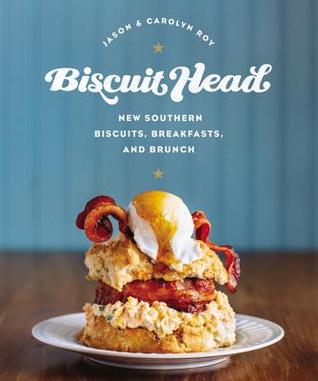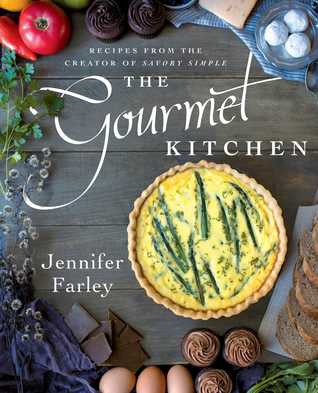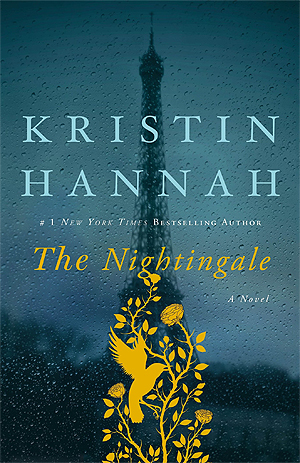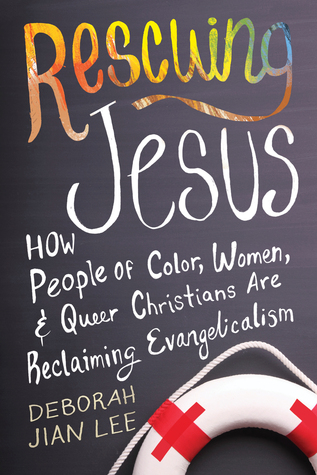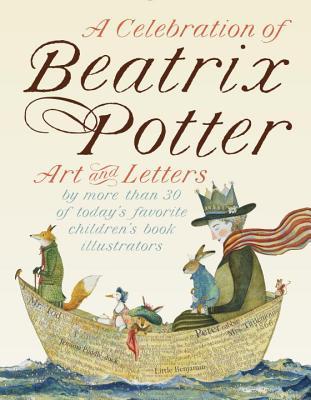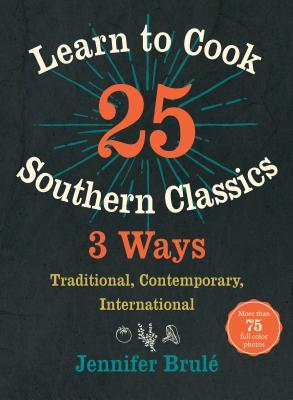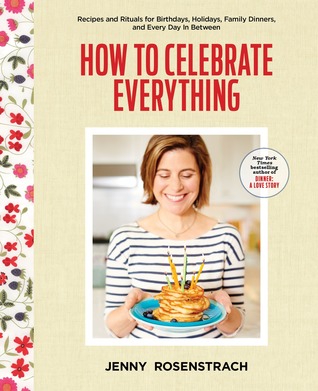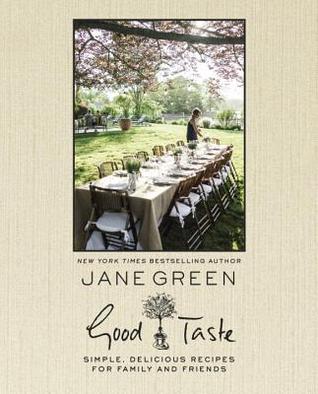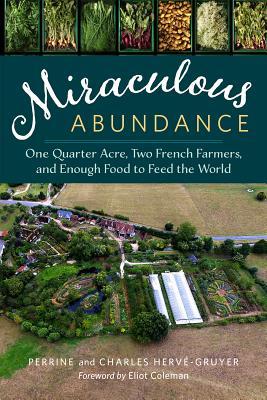What She Knew by Gilly MacMillan
Rachel Jenner is struggling with becoming a single mother to her son Ben after her husband leaves her for another woman. About a year after their divorce she and Ben are in a local park when he disappears. Rachel is frantic with worry, but soon the media focuses on her and begins speculating that she did something to Ben. Throughout the 9 days Ben is missing Rachel realizes that almost everyone close to her are harboring dark secrets. She begins to doubt everyone. The story alternates between Rachel's perspective and the perspective of the lead detective on the case James Clemo. It's clear that after the case is over detective Clemo is struggling with almost symptoms similar to PTSD, but it's never quite clear what caused that. I was thinking there was going to be some huge reveal related to his character, but there never really was. I thought Rachel's character was very well done and you definitely felt for her as the story progressed. The author did a good job of giving quite a few possible suspects, so by the end I was surprised. Overall, it was a good, quick read. It's the author's first novel so I'll be interested to see what she writes in the future.
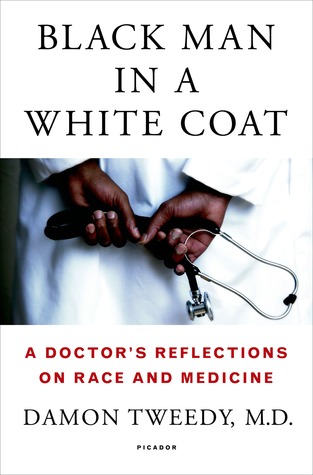
Black Man in a White Coat by Damon Tweedy, M.D. (Books & Banter book club)
When Damon Tweedy begins medical school he thinks that his race won't be an issue, but he moves into a world where race is often an issue for both doctors and patients. It starts when Tweedy is mistaken for maintenance staff by a medical school professor - the encounter really brings out a lot of racial insecurities in him. Often in school he hears about how certain diseases are more prevalent in blacks than whites. During his clinical rotations his race is often brought up by patients and other staff - in both positive and negative ways. This book is his sorting out how race affected his personal journey through medical school and into a practicing doctor, but also about race and medicine in general. I was surprised when black patients didn't want him to treat them because they wanted a "real" doctor and when other staff wanted him to take their black patients as if by being black he could somehow be a better doctor to a black patient than a doctor of another race. While very interesting and eye-opening, it's still sad to me that this is such an issue today. I'm curious (and somewhat worried) about what the discussion will be like in book club with this book.

A Robot in the Garden by Deborah Install
This was a complete surprise of a book! When I read a review of the book I thought it sounded interesting, but it was FANTASTIC! Ben has been in a funk ever since his parents died suddenly. He and his wife are growing apart and he is basically depressed and not really doing anything. One day when he wakes up there is a robot in his garden. It's obviously "retro" - not the new AI androids everyone is buying to help out around the house. But, Ben feels sorry for the robot, who calls himself Tang, and decides to try to find out where Tang came from. This turns into quite a journey taking Ben and Tang to California, Texas, Japan and Micronesia before finally returning home. During this process Ben starts to realize he's been grieving for his parents all along and just how much he misunderstood his wife as well. Tang ends up being the unifying force with Ben and both his family and the outside world.
This was really a great book that had laugh-out-loud humor and some more serious themes. A completely happy surprise. I can't wait to see what this author writes next!
Indian Creek Chronicles by Pete Fromm
Pete Fromm decided on a whim to attend college in Missoula, Montana. His roommate introduces him to "mountain men" literature - stories of men who survived and/or explored the wilderness. Fromm and his friends romanticize these men and their stories and so on another whim Fromm agrees to spend seven months in the Idaho Selway-Bitterroot Wilderness protecting salmon eggs. He has never shot a gun, used a chainsaw, or chopped wood before. But, he will be (mostly) alone for seven months from October to March. On the way to his post in the Selway-Bitterroot Wilderness Fromm starts to realize he is grossly unprepared for this job. The wardens show him how to use a chainsaw and break down a tree, but then they're gone. At first the days pass slowly, but over time Fromm starts to learn how to adapt to his new situation. It helps that he also has a puppy, Boone, for company. He's honest with his mistakes, but thankfully none of them are life-threatening. By the end of his seven months, he's actually craving the solitude that once drove him crazy. He has some once-in-a-lifetime experiences and also grows up from an immature college student into a man. This is a really unique and interesting book. He has a new book coming out soon and I'm looking forward to more from Pete Fromm.

What Was Mine by Helen Klein Ross
When Lucy Wakefield can't have children she is grief-stricken. Her marriage falls apart and she just tries to go on with her life. But one day when she comes across a baby in a store cart with no parent in sight, she impulsively takes the baby and raises her as her own. Lucy is constantly worried that she will be found out, but she never is - until her daughter Mia is in college and a series of events work together to expose Lucy's secret. The book is told from many perspectives, but mainly Lucy, Mia, and Marilyn, Mia's birth mother.
I thought this would be a really interesting book, but it was just kind of mediocre. The first section of the book where Lucy describes taking the baby and the immediate aftermath was the best part. After that is got really slow and bogged down. Overall, it was OK, but I wouldn't really recommend it.
When God Doesn't Fix It by Laura Story
If you've ever struggled with why bad things happen to you, whether an illness, a strained relationship, or an unanswered prayer, this is the book for you. Laura Story had her life all planned out and it started with her marriage to Martin. But, after they had only been married a little over a year Martin started experiencing weird symptoms. It was eventually discovered that he had a brain tumor. They both thought once the tumor was removed, things would get better. But, they got worse - Martin almost died and needed to have other surgeries. His short-term memory is severely limited and he struggled physically as well. There were years of struggles for Laura and Martin, but through it all she was able to see God's hand in their lives so much more clearly. This book highlights the many lessons Laura learned through their on-going struggle - she thought people could only learn from their story when it had a happy ending. But, God showed her that He works best through our brokenness and sharing their story even when it's not over is what can really help people. At the end of each chapter Laura highlights a myth she believed before their journey and the truth God revealed to her about that myth - then they are all compiled at the end of the book. This is really a great story and a testament to God working through us even when things seem to be at the worst.
Some quotes I really liked:
"I no longer believe the myth that trials are a curse. Trials are an opportunity. They are an invitation to do good works to glorify our Father in heaven, to transform our lives from the inside out, and to drive us into the arms and footsteps of Jesus." (p. 25)
"It's important to know that nowhere does the Bible promise that all our questions will be answered this side of heaven. God doesn't promise that our stories will make sense in and of themselves. But he does promise they will find their greater purpose in light of his greater story of redemption." (p. 141)
"The answer to why doesn't help us heal. But knowing that God's glory can be displayed, even in the brokenness of our lives, gives us hope despite our circumstances." (p. 142)
"God was asking me to reveal the brokenness in my life not to show how faithless I was, but how faithful he is. God wasn't going to use me in spite of my hard story; he was going to use my hard story." (p. 174)
"...I realized that when we're living in brokenness we can sometimes feel as though we're less than or not good enough. Sometimes that leads us to trying harder. Often it leads to us failing further. But we have to give up that idea and settle into who God created us to be." (p. 276)

Paris for One and Other Stories by Jojo Moyes
Every time I think I have new favorite by Jojo Moyes, I read her next book and it's instantly my new favorite! She is just a wonderful author and this book does NOT disappoint. The main short story, really more of a novella, follows Nell on what is supposed to be a romantic trip to Paris with her boyfriend after he bails on the trip. Then there are 8 other short stories - all very different, but all fantastic. My favorite one was the last one, "The Christmas List." Fans of Jojo Moyes this is another winner!
Miraculous Abundance: One Quarter Acre, Two French Farmers, and Enough Food to Feed the World by Charles and Perrine Herve-Gruyer
Perrine and Charles Herve-Gruyer both had successful careers, but wanted to spend their days closer to the land. They were also concerned about where their food came from, so they decided to become farmers. Through trial and error they transform a small piece of land in France into a wildly productive food business. This book explores their farming philosophy and some of the the issues they've encountered and overcome. My main complaint about the book is that it's not a straightforward story of their farm. That is interspersed throughout the chapters on various topics/issues/philosophy/etc. It is an interesting book, just not exactly what I was expecting. But the biggest point is that they show that you can make a living on a a quarter acre of land if you plan well and use permaculture ideas - they commission a study to see exactly how much work and production goes into one 1/4 acre section of their farm and the results are astounding (pg. 118-121 for specific data). Definitely an interesting book and the color photographs really make the book because you get to see the spaces they've transformed.
Some quotes I really liked:
"Slow Food is often criticized as elitist. But that criticism is totally blind to the real issue. It is not important whether you or I or anyone else in the United States ever gets to eat some specific artisanal food. What's important is that it exists, that there is one small corner of the planet still unconquered by Kraft or Nabisco or Monsanto, one little rural holdout inhabited by a few hardworking people who still know what quality is and have a passion for producing it." (p. x of the Forward)
"Here is a definition of this system adapted to our latitudes, from Patrick Whitefield: 'A forest garden is a garden modeled on natural woodland. Like a natural woodland, it has three layers of vegetation: trees, shrubs and herbaceous plants. In an edible forest garden the tree layers contains fruit and nut trees, the shrub layer soft fruit and nut bushes, and the ground layer perennial vegetables and herbs. The soil is not dug, and annual vegetables are not normally included unless they can reproduce by self-seeding. It is usually a very diverse garden, containing a wide variety of edible plants.'...If we abandon an agricultural area, it is the forest that will return naturally. Maintaining open space requires constant effort. The central role of the tree is becoming better appreciated. It fulfills a plethora of ecological functions, creates soil, promotes microclimates conducive to life, and stores carbon. It also beautifies the landscape and provides countless human services." (p. 128-9)
"Traditional agriculture was labor intensive, industrial agriculture is energy intensive, and permaculture-designed systems are information and design intensive. - David Holmgren" (p. 147)
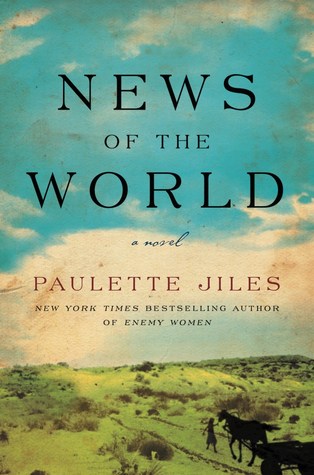
News of the World by Paulette Jiles
After the Civil War Captain Jefferson Kidd rides from small town to small town reading the news of the world from various newspapers. He's lived through three wars, is widowed, and enjoys the freedom of not being tied down in his old age. While at one of his stops he is offered a fifty-dollar gold piece to bring a rescued white child back to her family. Johanna Leonberger's parents and younger sister were killed by Kiowa raiders and she was kidnapped and lived with them for 4 years. She is now 10 years old, does not speak English, and doesn't want to leave her Kiowa family. The Captain agrees to take her against his better judgement, but while traveling across the wild Texas territory the two form a unique bond. Once they reach her extended family outside San Antonio the Captain has to make a terrible choice that will ultimately change both he and Johanna's lives forever. This is a short, but fantastic book with two very memorable characters and would make a great movie! Definitely worth reading!
